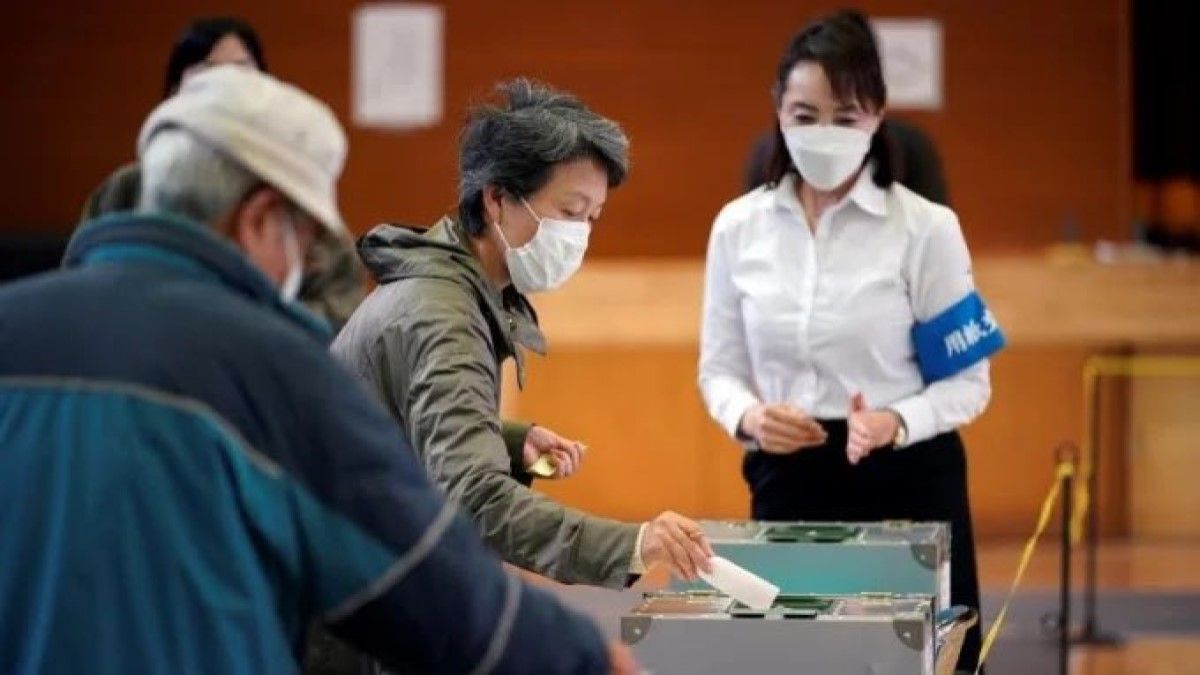However, if this result is confirmed, the ruling party will lose 30 of the 276 seats it currently has and will have obtained one of the worst electoral results since 2009.
“I think we have gained valuable trust” from voters, Kishida told reporters, according to the AFP news agency.
The secretary general of the PLD, Akira Amari, anticipated in a television program shortly after the elections closed that the group would obtain “a severe result.”
“People were dissatisfied and concerned about the Covid-19 pandemic and that was reflected in the outcome of the elections,” Amari added.
Meanwhile, Kishida considered that the projected loss of seats is due in part to the strategy of opposition parties to present unified candidates in many electoral districts of a single legislator, but also to the judgment of voters over their predecessors during the last four years.
Kishida, 64, was elected prime minister on 4 this month, after winning the leadership race in his party, and dissolved the lower house just 10 days after taking office.
Conservative party leaders saw him as a sure successor to the status quo of Yoshihide Suga and his influential predecessor Shinzo Abe.
Kishida’s immediate task was to rally support for a party weakened by Suga’s perceived overbearing approach to measures against the coronavirus pandemic and his insistence on holding the Tokyo Olympics despite widespread opposition due to it. to a large number of infections, which have since declined dramatically.
Kishida repeatedly emphasized his determination to listen to the people and address the criticism that Suga’s leadership for nine years had stoked on corruption, tamed bureaucrats and muzzled opposing views.
The campaign focused largely on response measures to Covid-19 and revitalizing the economy.
While the ruling party emphasized the importance of having a stronger military amid concerns about China’s growing influence and North Korea’s nuclear and missile threat, opposition parties focused on diversity issues and lobbied for Gender equality.
The PLD opposes legislation that guarantees the equality of sexual minorities and allows the separation of surnames for married couples.
Opposition leaders complain that recent LDP governments widened the gap between rich and poor, did not support the economy during the pandemic, and stalled diversity and gender equality initiatives.
Of the 1,051 candidates, only 17% were women, despite a 2018 law promoting gender equality in elections, which is ineffective because there is no sanction for noncompliance.
Women make up about 10% of parliament, a situation that gender rights experts call “democracy without women.”
This year, Japan was ranked 120th in the World Economic Forum’s 156-country gender gap rankings.
The opposition long struggled to win enough votes to form a government after a brief rule by the now-defunct center-left Democratic Party in 2009-12, as it failed to present a grand vision for the country.
On the economy, Kishida emphasized growth by increasing incomes, while opposition groups focus more on the redistribution of wealth and demand cash payments from low-income households affected by the pandemic.
Kishida said today that he planned to reappoint the same members to his post-election cabinet, to accelerate work on a supplementary budget to be able to finance an economic package that provides support to people and companies affected by the pandemic.
“I will take concrete steps to achieve our policies as soon as possible, I need to move fast,” Kishida said.
Two hours before the polls closed, turnout stood at 31.6%, higher than 30.0% at the same time in the 2017 general elections, when the final presence reached 53%.
David William is a talented author who has made a name for himself in the world of writing. He is a professional author who writes on a wide range of topics, from general interest to opinion news. David is currently working as a writer at 24 hours worlds where he brings his unique perspective and in-depth research to his articles, making them both informative and engaging.




